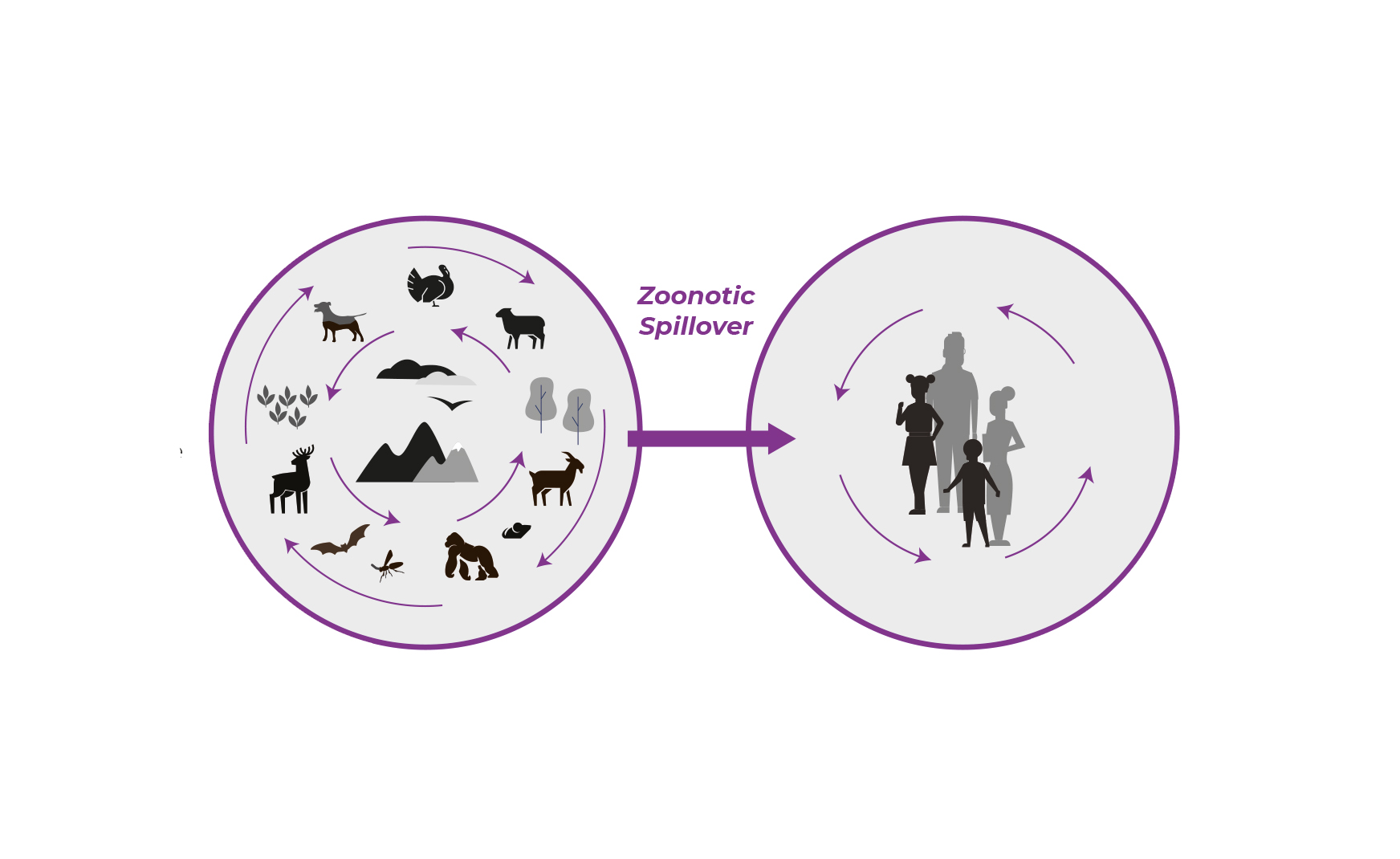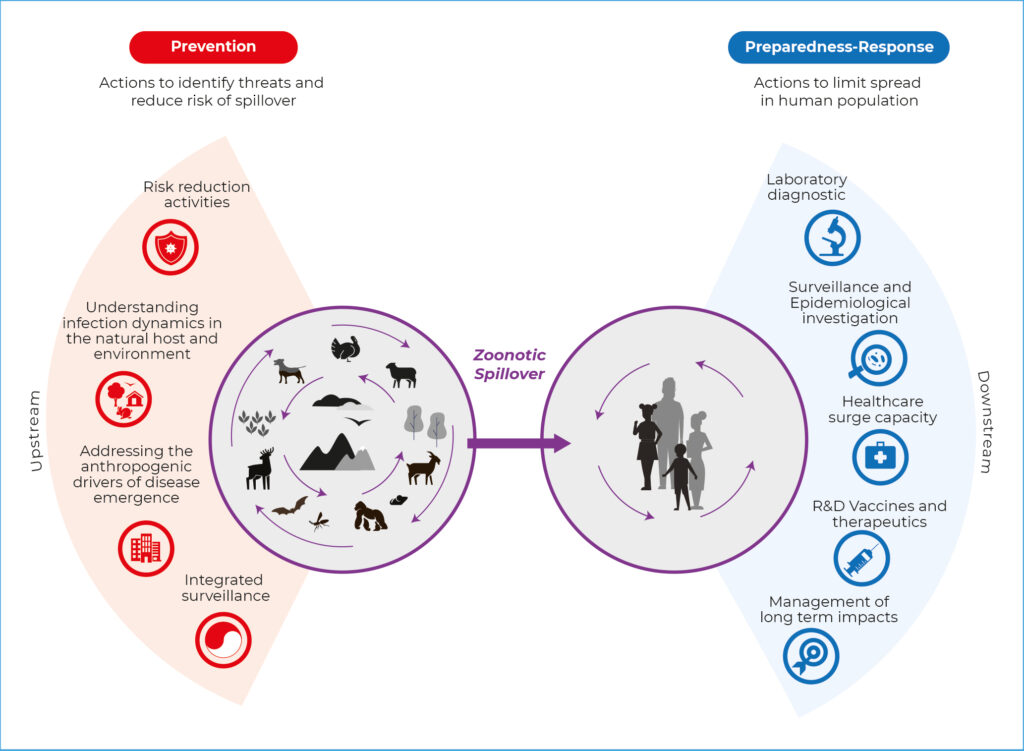
The new whitepaper/ opinion piece by the One Health High Level Expert Panel (OHHLEP) expresses a crucial insight into effectively and efficiently preventing pandemics: pandemic prevention starts at the source, in other words, prevention takes place before pathogens spill over from animals, to humans. Often these pathogens originate in wildlife. While pandemic preparedness and response has its merits in dealing with outbreaks and containment challenges, it is essential to actively identify underlying drivers and critical control points to address risk factors for spillover events.

In the whitepaper “Prevention of zoonotic spillover – From relying on response to reducing the risk at source”, the OHHLEP establishes an important and todate missing definition of what primary prevention of zoonotic disease spillover means:
“Prevention includes addressing the drivers of disease emergence, namely ecological, meteorological and anthropogenic factors and activities that increase spillover risk, in order to reduce the risk of human infection. It is informed by, amongst other actions, biosurveillance in natural hosts, people and the environment, understanding pathogen infection dynamics and implementing intervention activities.” (OHHLEP, 2023, p. 7)
Centrally, the paper (a) highlights the importance to actually reduce the risk of occurrence of spillover, which can subsequently lead to outbreaks, epidemics and in the worst-case pandemics rather than s only preparing for and responding to the imminent threat when it has already emerged as an outbreak or epidemic. Concretely, it calls for this position to be integrated into “several ongoing discussions, revisions and developments of new instruments, funding strategies, tools and plans that can potentially play a role in the prevention of future pandemics, including the WHO Pandemic Instrument and Global Biodiversity Framework.” (b) OHHLEP clarifies and underscores that addressing the early drivers of pathogen spill over in fact has many co-benefits, especially for the economy, for biodiversity, and for mitigating and adapting to climate change.
The full paper, including its results framework with impact and intermediate indicators is highly recommended and can be found here.
Image Source: Prevention of zoonotic spillover to humans (OHHLEP, 2023, p. 12)